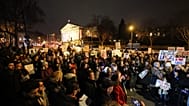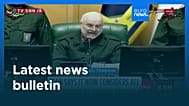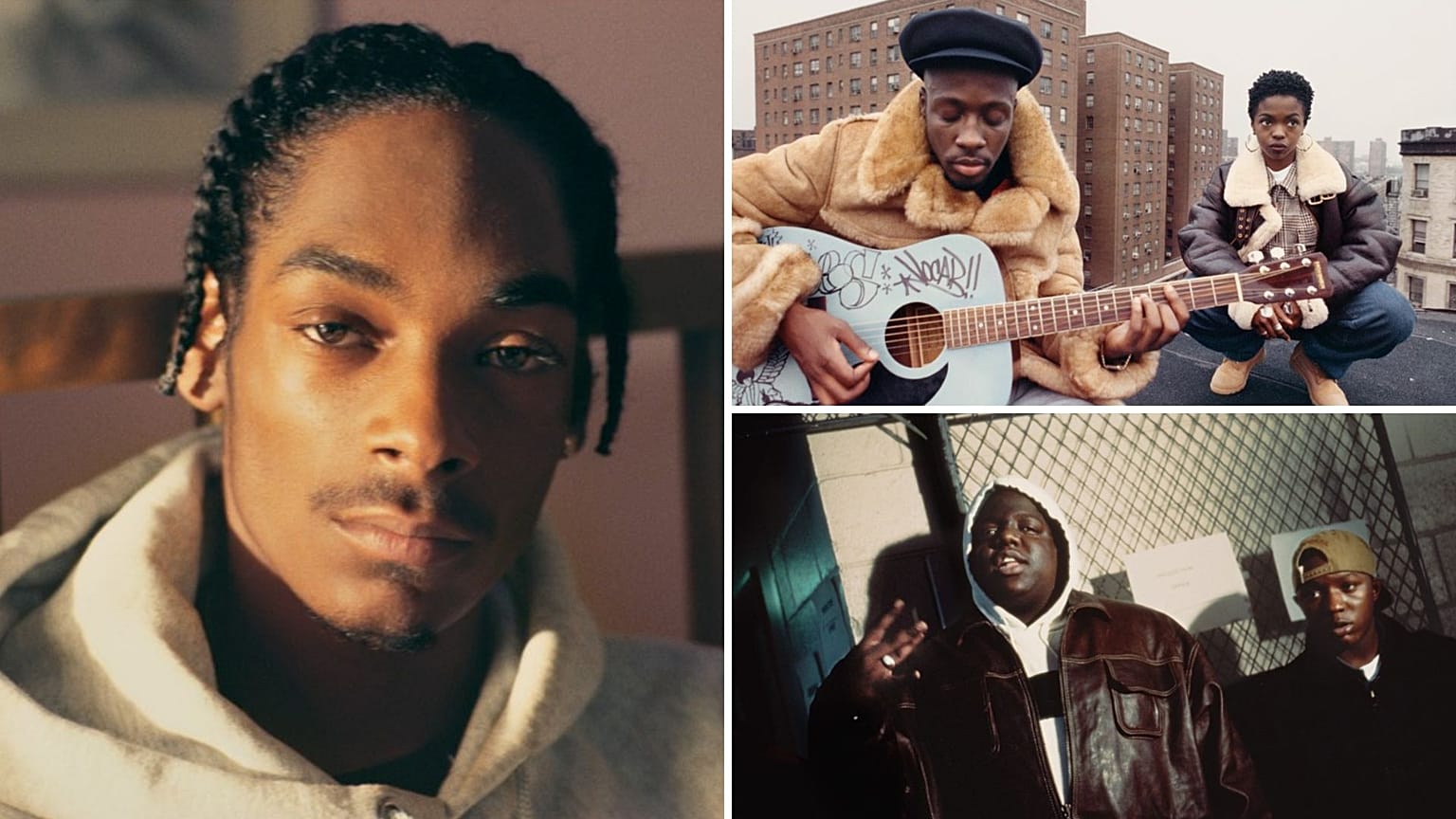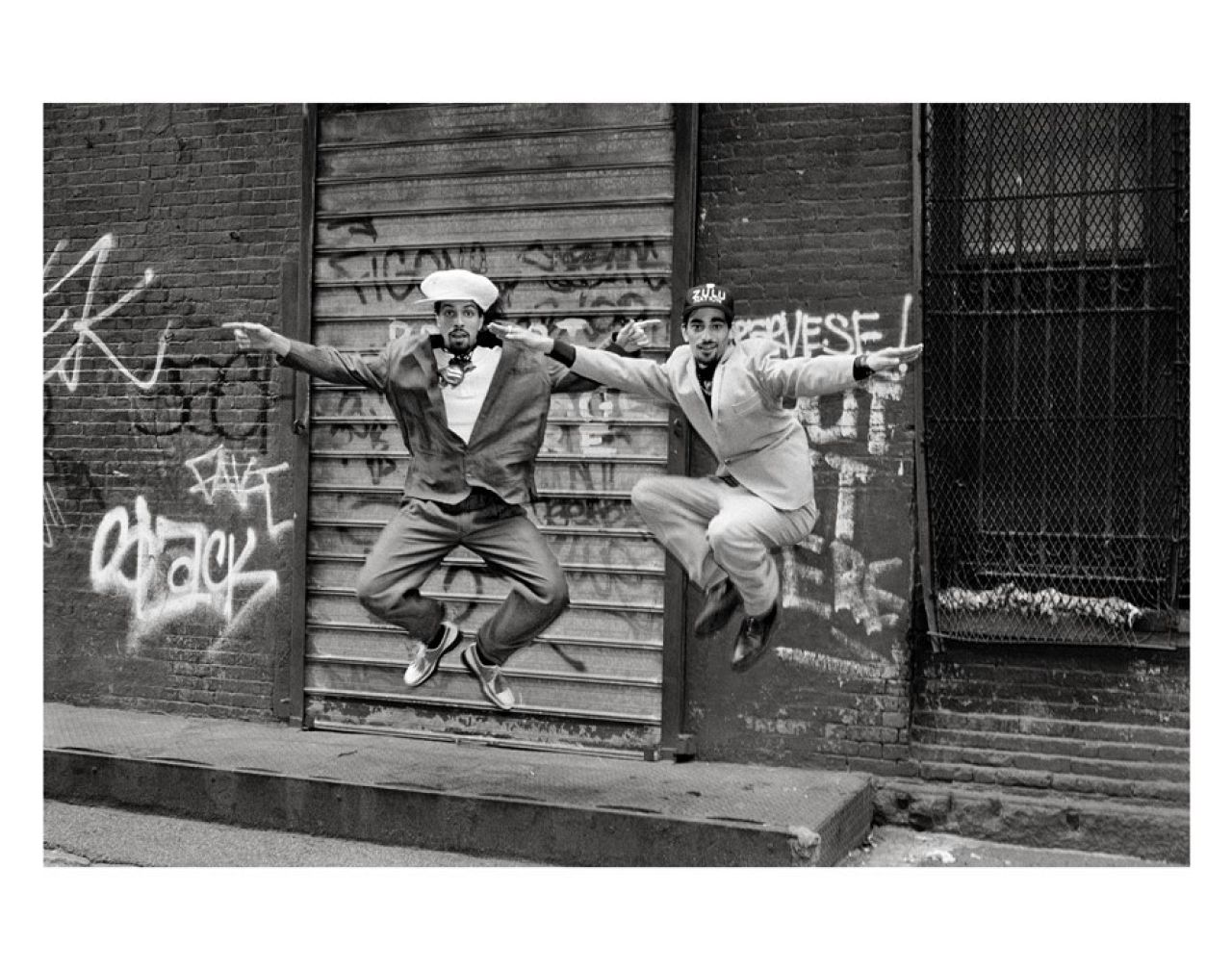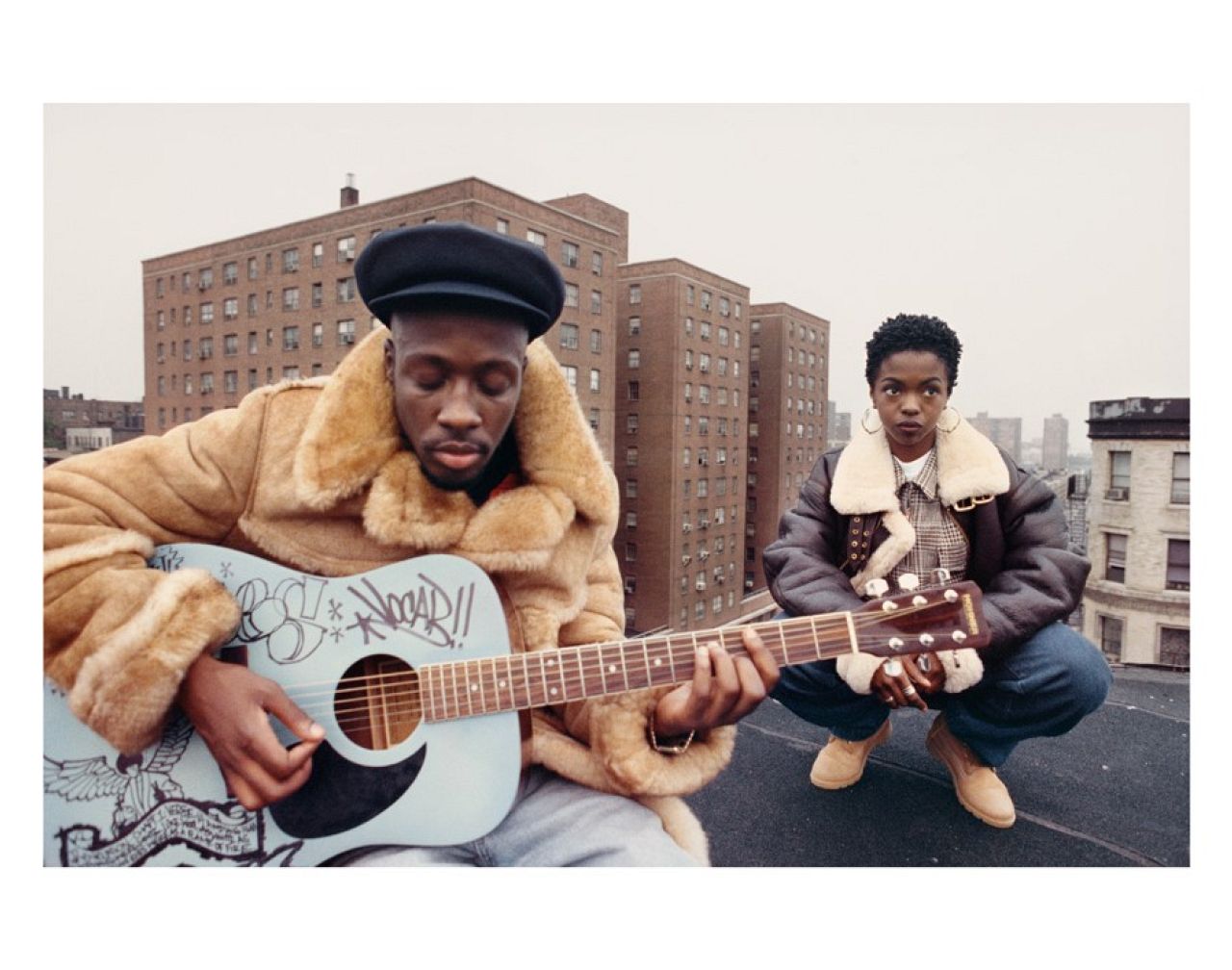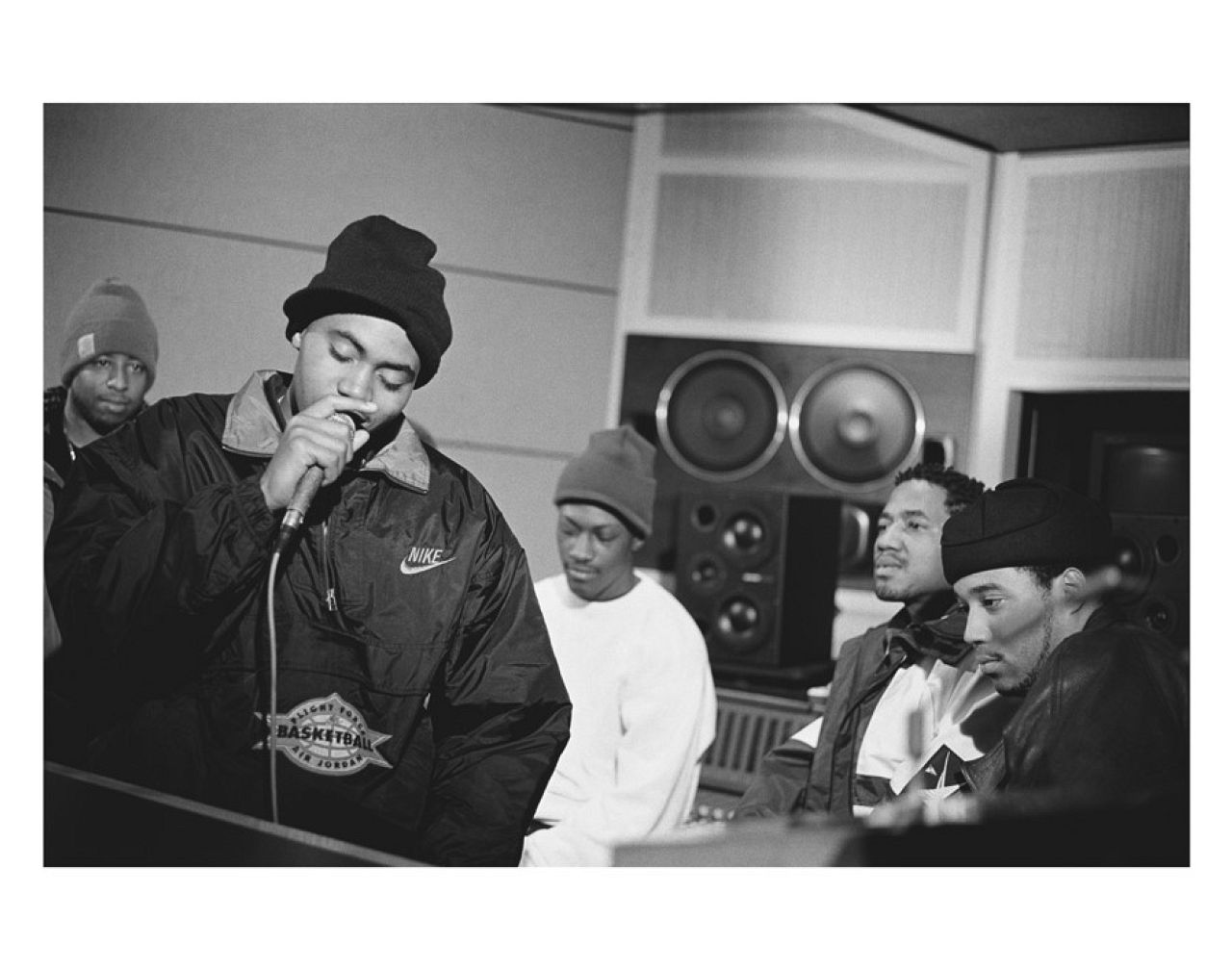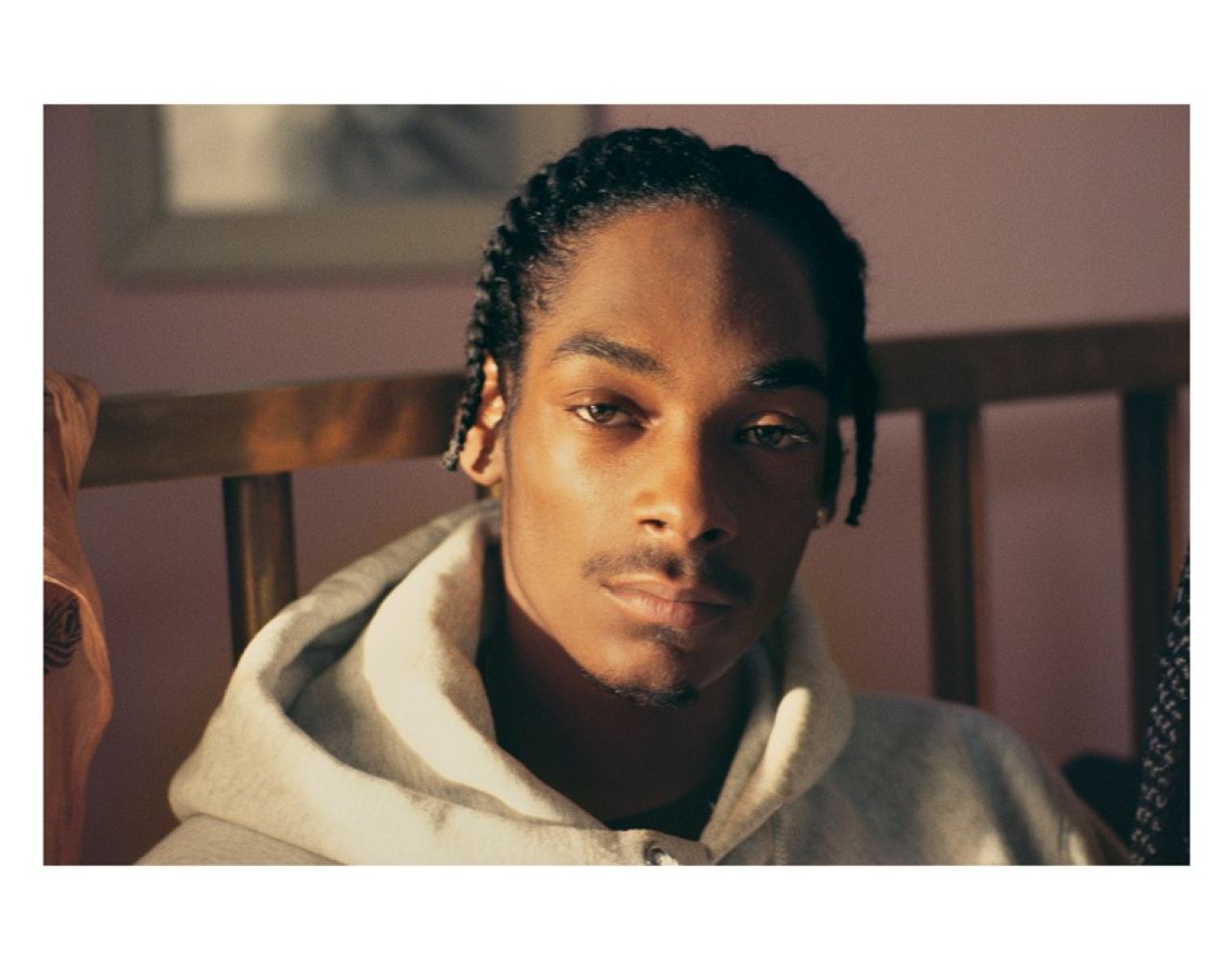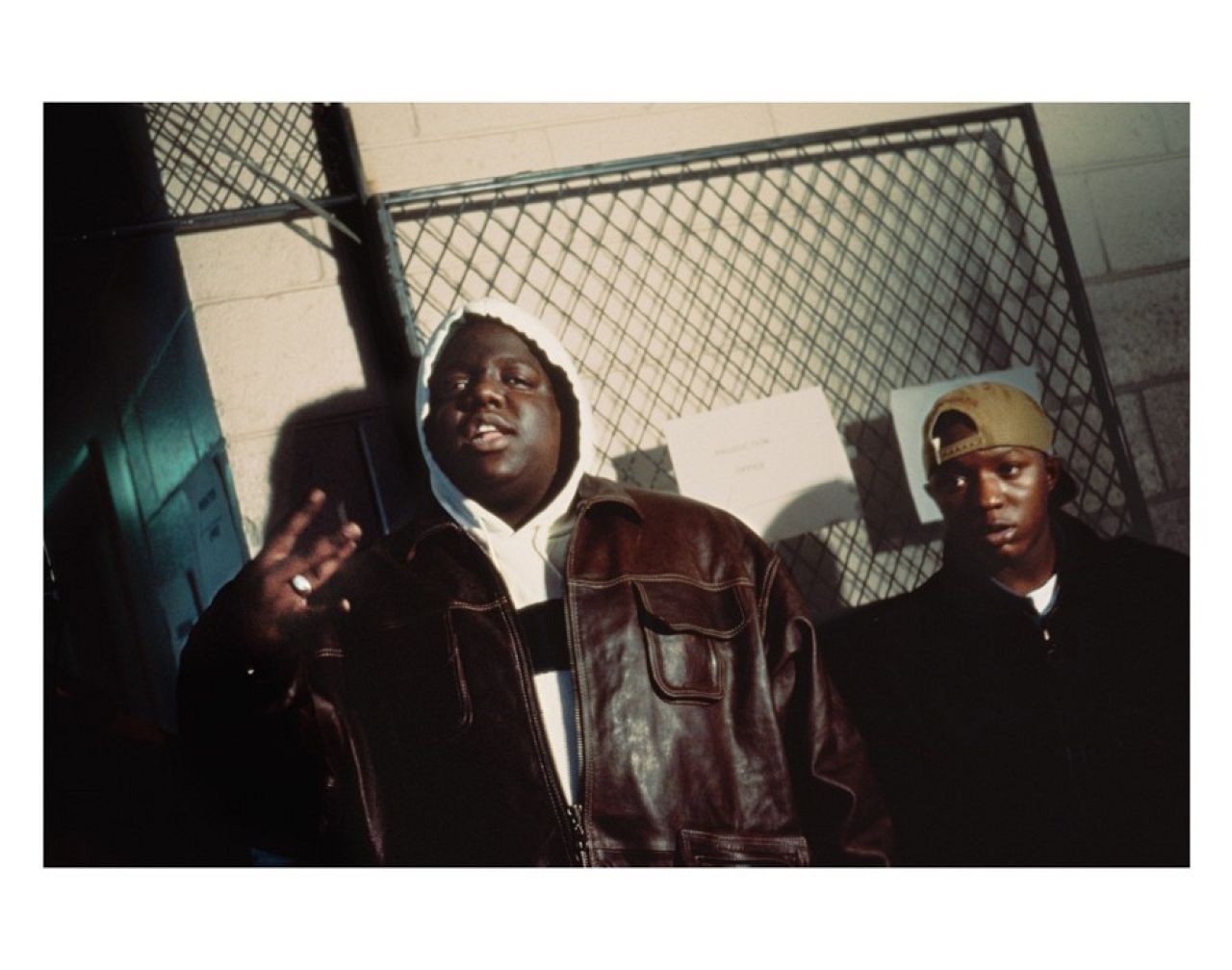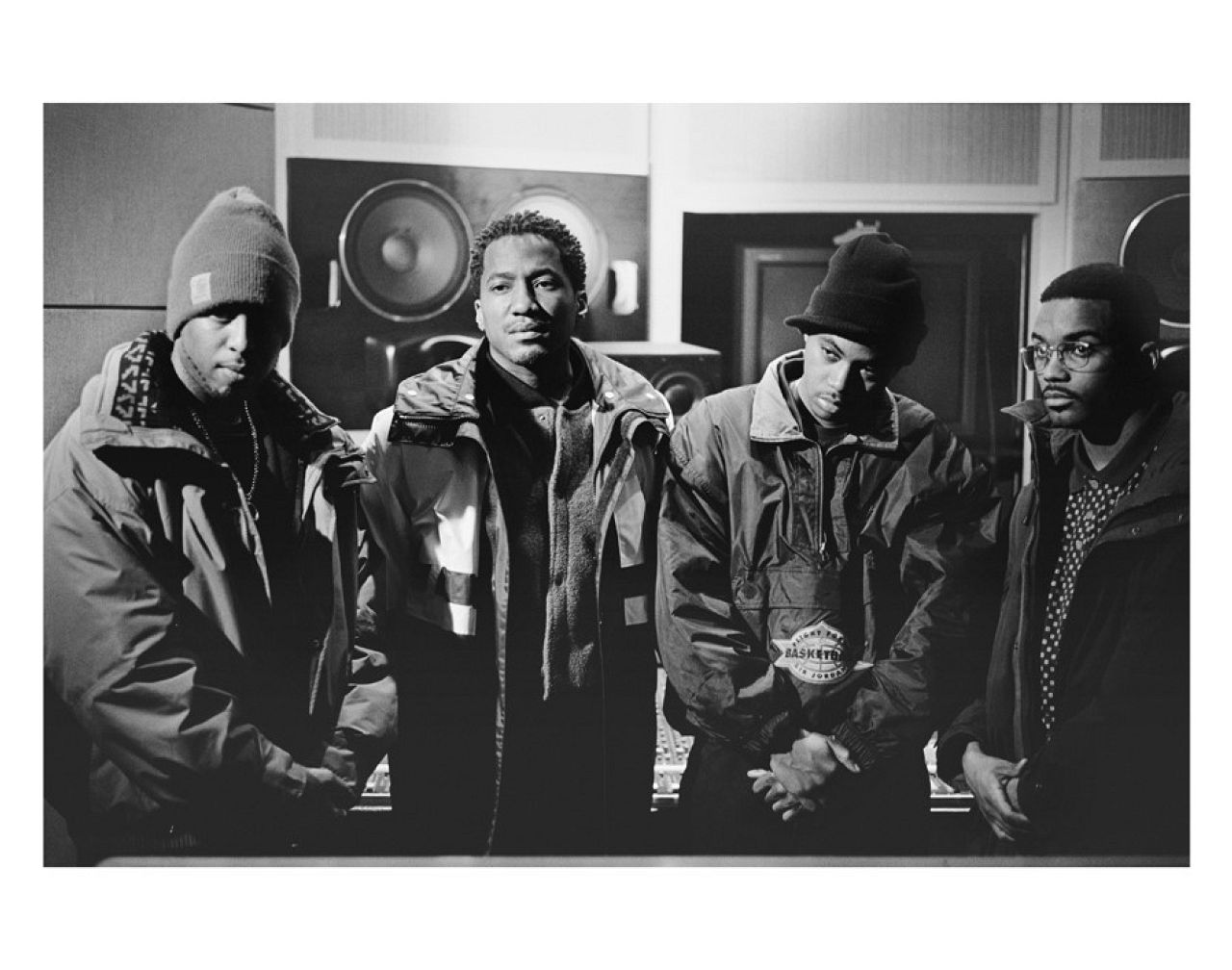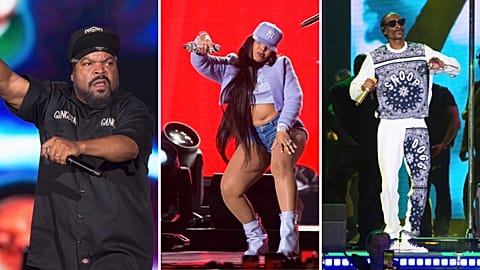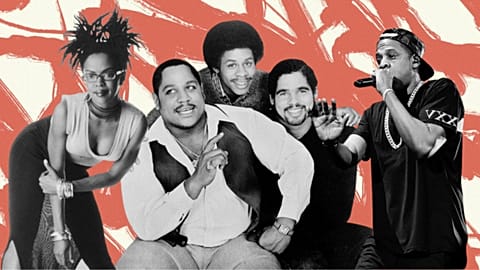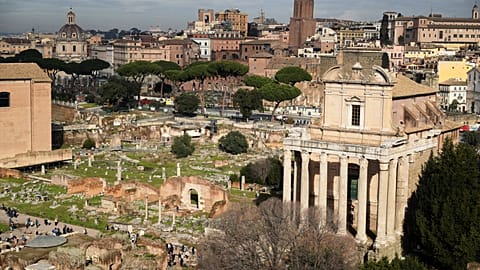Lisa Leone: The female photographer who documented the golden age of hip-hop in New York
Euronews Culture spoke with Lisa Leone, a photographer and filmmaker, who began her career shooting for some of the most influential names in hip-hop.
Not many can claim they were in the studio for the recording sessions of Nas' landmark 1994 album, 'Illmatic'.
However, for Lisa Leone, it was just another day in her extraordinary life as a photographer on the vibrant streets of New York City, at a time when hip-hop culture was blossoming.
Hailing from the Bronx, the self-proclaimed "b-girl" developed a passion for photography from an early age and went on to capture some of the most influential figures in hip-hop, including Lauryn Hill, the legendary Notorious B.I.G, a young Snoop Dogg on the set of his debut music video and the pioneering father of hip-hop, Grandmaster Flash, among many other names.
Beyond the realm of photography, Leone's talents extend to various aspects of filmmaking, including writing, producing and directing.
Her creative prowess led to collaborations with esteemed visionaries like Spike Lee on his groundbreaking 1989 film Do the Right Thing, and later with the legendary Stanley Kubrick, on his final masterpiece, Eyes Wide Shut.
In this interview, we delve deep into Leone's contribution to the world of hip-hop as the genre celebrates its 50th anniversary.
Euronews Culture: Where did your passion for photography and cameras come from?
Lisa Leone: My passion for photography started with my uncle who had a makeshift darkroom in his bathroom when I was a kid. So I developed my first 8x10 print of myself when I was probably like around eight or nine. When the images would appear it felt like magic.
What was it that you drew you to photography at the time?
When I was younger I was very shy, but I also loved to observe. So it was a way for me to observe and figure things out behind the camera, without being the centre of attention. My passion lay in naturalistic portraiture and documentation, finding fascination in capturing the essence of textures, people's homes, and their surroundings. It was my way of delving into life and gaining insights into different individuals and their experiences.
Can you tell us about your early experiences as a photographer and how you got the opportunity to shoot musicians and personalities like Nas, Lauryn Hill, and Easy E?
During high school, I began my journey working in studios. At the same time, the global breakdancing and graffiti scene was exploding around the world, and I had friends like Fabel and Wiggles who suddenly needed photographs for publicity, to which I agreed. I was a real b-girl at the time. Later, I attended college, where my interest in portraiture continued. It all progressed naturally.
After college, luck was on my side, and I had the amazing opportunity to intern with Spike Lee on his film Do the Right Thing. This experience ignited my passion for filmmaking, which had already grown during my college years. I initially focused on still photography for films, but gradually, my journey led me into cinematography and eventually directing.
What are some of your most memorable early memories as a photographer?
Well being in the session of 'Illmatic' with Nas was like watching history being made. He was just so young and what was happening in the studio was truly special.
I also remember a funny incident with Big Daddy Kane. When I shot him I was using a Leica film camera so it was much slower. And he'd just had a shoot the day before where somebody was using a much fancier camera and had all these lights. So he kept commenting that my equipment was shit because I was going so slow. So I told him, 'Well I don't go into the music studio and tell you what to do' which made him laugh. So we had this funny little back and forth, and it was just a great relationship.
Funnily enough I also photographed Snoop Dogg's first music video that Fab 5 Freddy directed, who I'm good friends with. Fast forward around 25 years, and we arranged a meeting with Snoop Dogg to show him the slides from that shoot. He was blown away by the images. He said, 'I don't know how you captured these images. Back then I was so guarded and shy. You must have hip-hop in your veins or something.' That was a special moment for me.
As a candid-focused photographer, how do you ensure that your subjects are portrayed authentically?
I just spend time with them beforehand, not rushing in or bombarding them. It was usually just me, or sometimes one other person. We approached it with a certain spirit, and spoke to the person before to understand their vision. Back then, there were no digital tools to preview images, so it relied heavily on trust. I'm just there with this little black box, taking photographs, and they had to wait until I developed the film to see the results. They had to trust me. It was a different kind of relationship.
Did you feel challenged being a female photographer in a mostly male-dominated environment?
I mean it was just annoying at times. When I was in high school, I was a total b-girl so I was coming from the culture. But it was more dealing with just always being hit on really. I really had to manoeuvre that but I was confident enough to stand toe-to-toe with these guys.
Who is your favourite hip-hop artist/group of all time?
I love Guru and I love Gang Starr, but Rakim is my all time favourite. I just got to recently spend time with him too - he just did a concert here in Miami. Salaam Remi brought him down.
As hip-hop celebrates its 50th anniversary, what are your thoughts on the current state of the genre, and how do you think it's changed over the years?
Well I'm always asking people what I should listen to because now it's inundated with so much stuff and there's so many places to listen to music. Obviously I think Kendrick Lamar's incredible. And you have people like Lil Nas X who are breaking barriers which is awesome. There's also some great underground stuff out there. But I really don't listen to a lot of contemporary hip-hop. It's now a billion, billion, billion dollar industry. So it's all very highly produced.
Working with Stanley Kubrick on his last film, Eyes Wide Shut, must have been an extraordinary experience. Could you share some of your most memorable moments and lessons learned from being mentored such a legendary filmmaker?
It was the most incredible experience. He's originally from the Bronx, so he's from the same neighbourhood as my family. He went to the same high school as my aunt and so we immediately had this connection. There's just a cadence.
We started talking on the phone for a year. I was just doing research pictures lighting tests and so on and so forth. And then he was finally like "Why don't you just come out here and be the set decorator?". Without hesitation I said yes.
Working on a film with him felt like being part of a student film production. There's just a small core of people. If you're willing to give up your life, which I was on, and be on call 24/7, he'll give you more and more to do. So I decided to dedicate all this time to absorbing and learning. I learned tremendous amount from him.
Eventually, he gave me the chance to handle the second unit, and he even put me in the film - all of a sudden I had scenes. He was not only an exceptional director but also an incredible producer, and taught me valuable lessons about producing along the way. And I was getting ready to work on his next project A.I. but he sadly passed.
He was a lot of fun, wicked sense of humour. Just incredible to spend four years, every single day talking to him. I carry that always and it just makes me so sad that we don't have him anymore.
You’ve worked as a photographer, cinematographer, writer, producer and director. What advice would you give for young people looking to pursue a career in the creative industries?
When it comes to photography, my advice would be not to rush into picking up the camera immediately. Experience it and be in the moment. Connect with the subject. Try do it there instead of in the edit. Challenge yourself not to take 2000 pictures. Quality over quantity is key.
In filmmaking, following your heart is paramount. It's a tough journey, especially with the various challenges and strikes we face today. However, it's essential to stay true to yourself and maintain authenticity in your work. Don't try and follow trends or cater solely to what others want. Stay connected to your heart, letting your passion and voice shine through.
AI technology has revolutionised the way we approach photography and filmmaking, but it has also sparked controversy around issues of authenticity and creativity. As a leading figure in the industry, what are your thoughts on the role of AI?
When it comes to AI I think I caution is necessary, especially when it comes to fields like photography, film, television, and writing. Among these, writers could potentially face the greatest risks. We need our writers. So we must approach AI with careful consideration and establish clear boundaries to prevent a loss of creativity.
I remember the conversation in the late nineties was about whether or not digital was going to overtake film? And there was a whole camp saying there was no way it would. But look where we are now. When people say, "AI isn't that impressive now," I've been down that road. It will be great. That's why it's essential to begin to have these real serious discussions about the applications of AI now.
The sad thing is, especially amid the current strikes, is the lack of humanity displayed. These artists can lose their livelihoods. We need to look out for them instead of merely thinking "This could make us billions" without regard.
To see more of Leone's images, check out her best-seller hip-hop photography book, 'Here I Am', which features 104 pages of archive photographs.



